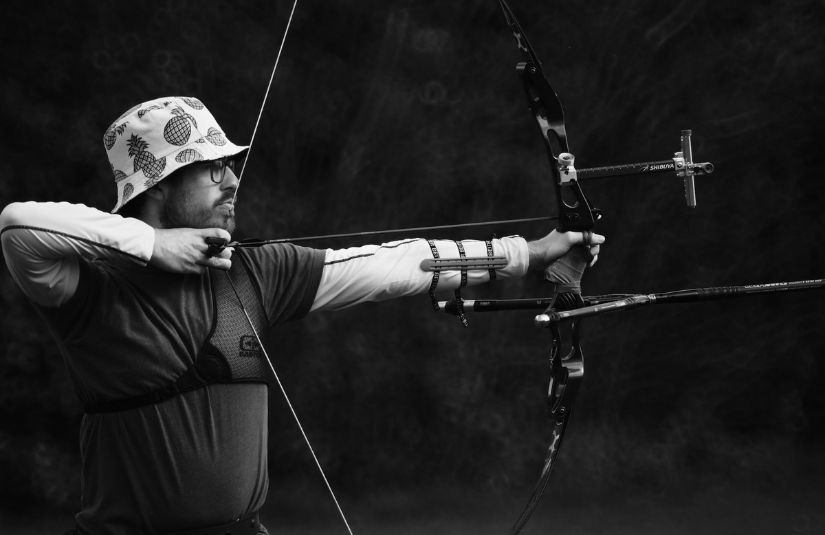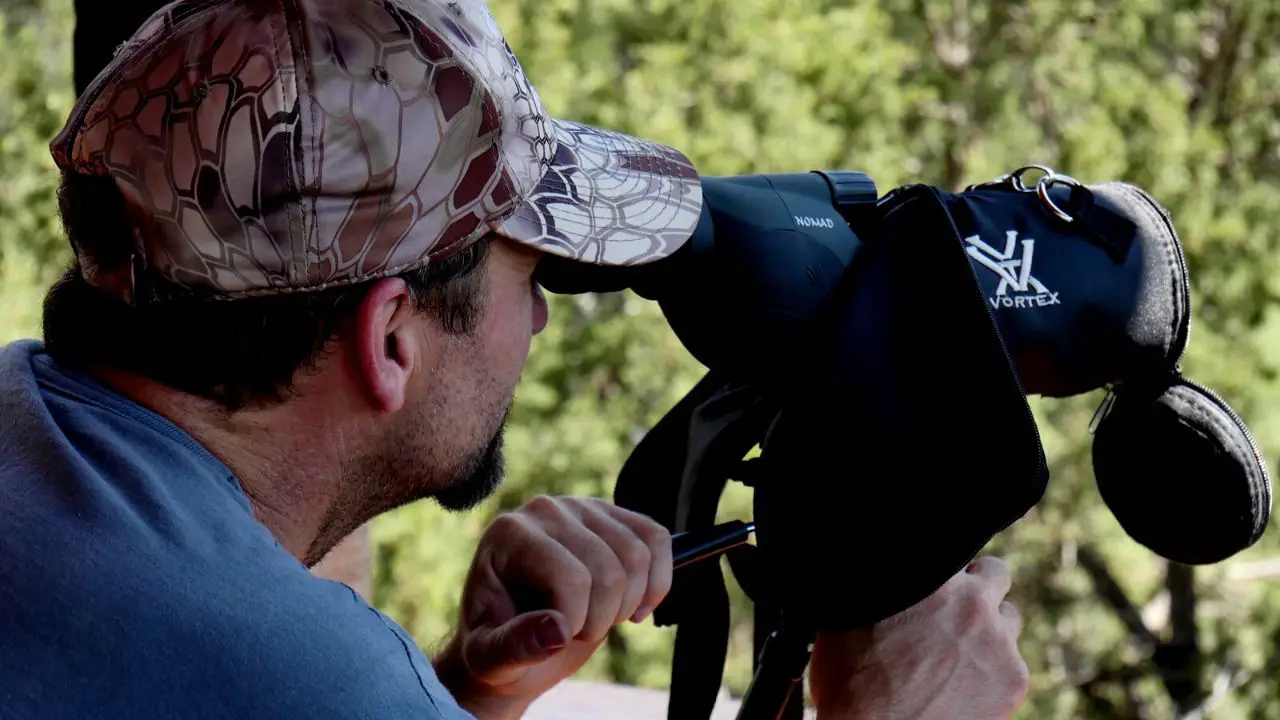What Should Be True About Any Firearm You Choose to Use for Hunting?
Are you in the market for a new hunting firearm? In this article, we'll cover the top qualities and features that should be true for any firearm that you choose for hunting to ensure a successful and safe hunt. Read on for simple tips and recommendations.
Hunting is an age-old tradition that has its conservation importance. But it is also a challenging sport that requires skill and knowledge of the terrain, but selecting the right firearm is also important.
Every hunter should consider some key elements when selecting a gun for hunting, such as size, weight, and accuracy. In this blog post, we'll explore what should be true about any firearm you use for hunting.
We'll look at which characteristics are essential for successful hunting trips and why having the right equipment is so important. So get ready to take your hunting skills to the next level with these valuable tips!
Your firearm must be legal for hunting in your state or region.
The most important thing of course, for any firearm you select for hunting, is that it must be legal in your state or region. Before heading out on a hunt, it's important to ensure that the gun you're carrying is allowed for hunting in the area.
Every state passes its own hunting laws and regulations that govern which equipment is appropriate for hunting and what types of ammunition can be used. For instance, some states restrict deer hunters to rifles of certain calibers.
Before setting out, ensure you have all your gun licenses and hunting permits ready, and go through the regulations in your hunting locality. Check what's permitted before taking your gun out into the field!
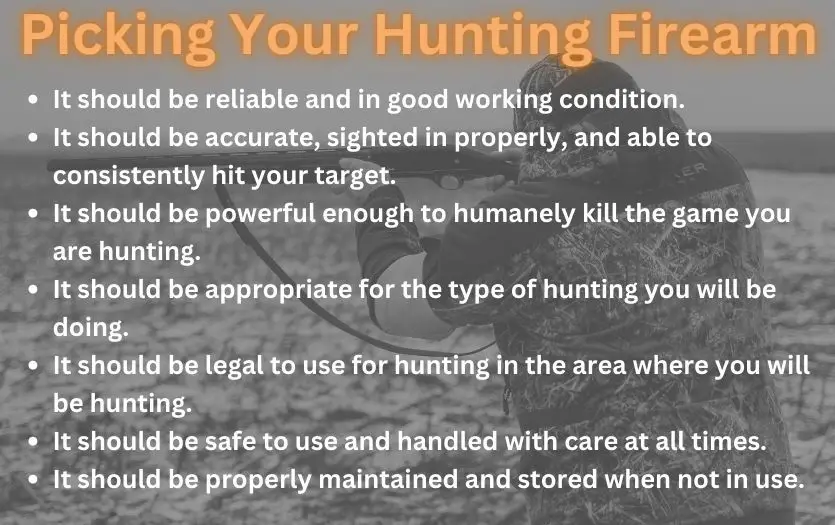
Also, check out our article on the Best Rifle Slings
Ensuring Success While Hunting
Whether a novice or an experienced hunter, selecting the right firearm can make all the difference in a successful hunt.
Some of the factors that you should consider are:
Your firearm should be the right size and weight and comfortable to use.

Selecting the perfect hunting firearm doesn't just come down to the gun's specifications - it's also important to pick a size and weight that works for your body type.
A too-big or heavy firearm will be uncomfortable and more difficult to control when shooting. On the other hand, a gun that is too light or small may not have enough stopping power for larger game animals.
For example, smaller target guns are great for shooting clay pigeons or creatures but inappropriate for larger games like elk or deer. However, choose something depending on your stature and carrying capacity. Choosing a hunting firearm that fits your needs will make all the difference in ensuring a successful hunt!
You should practice with it regularly to ensure accuracy.
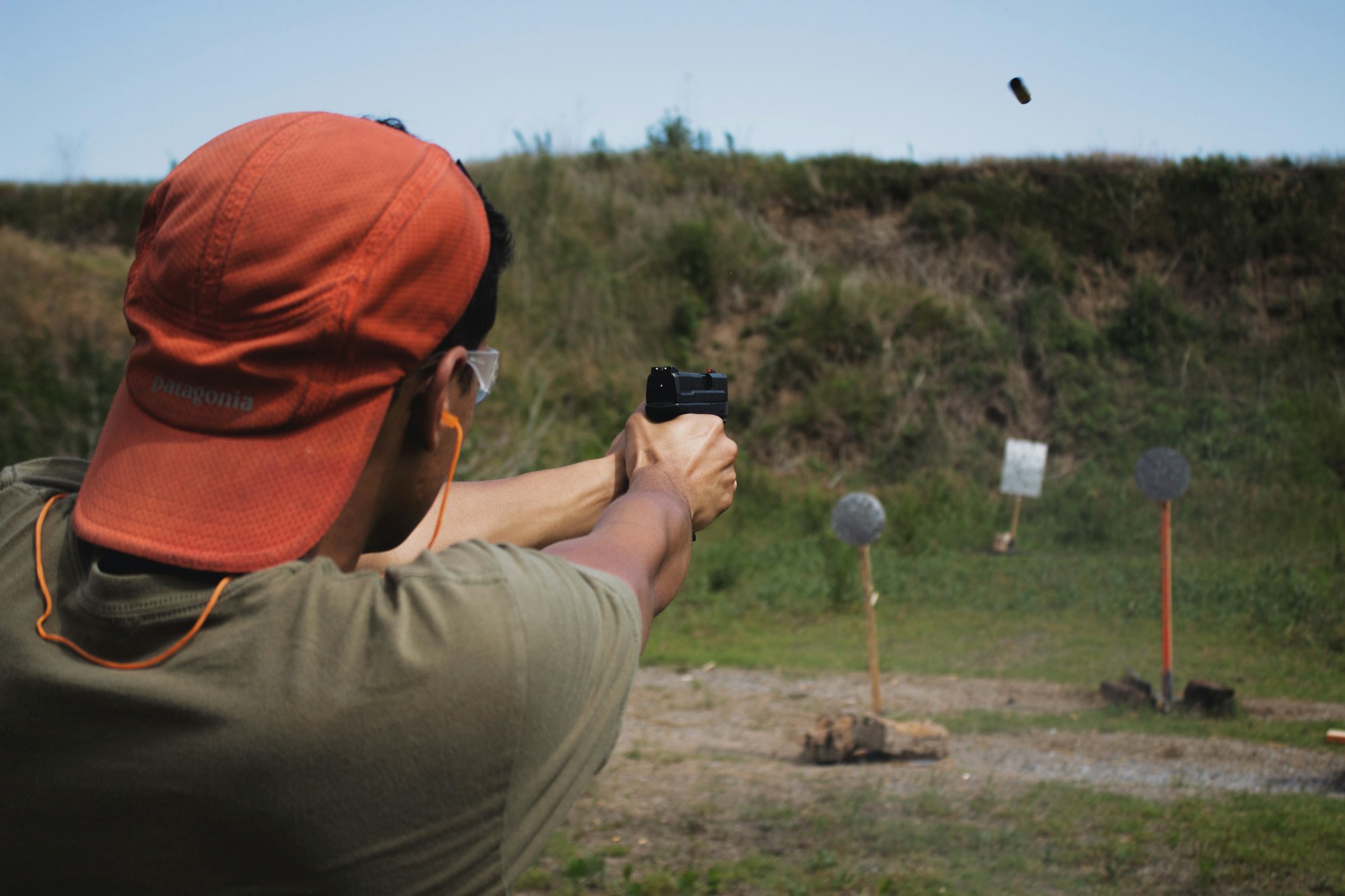
Practicing with your firearm is an essential part of hunting season preparation. Consistent practice not only helps you become more confident and accurate with your weapon but also allows you to ensure the gun is properly sighted in for the range or terrain you plan to hunt in.
Regular practice can also help identify any potential issues with your firearm so that they can be addressed beforehand. So get out there and practice - it's vital for successful hunters!
Make sure it is properly maintained and kept clean.
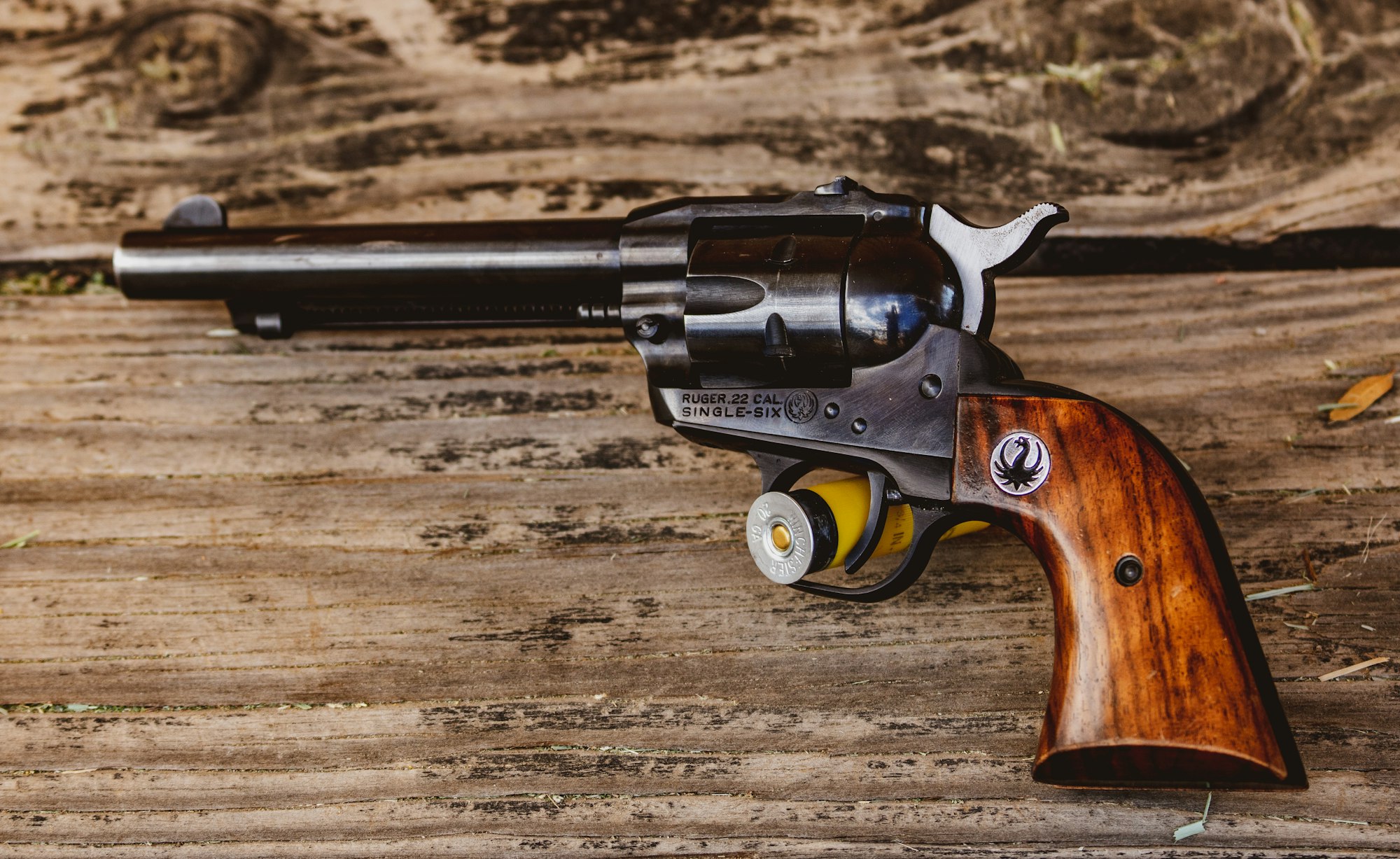
Maintaining and cleaning your firearm is just as important as practicing with it. Taking proper care of your firearm ensures that it will provide you with reliable performance and accuracy during hunting season. Inspect your gun after every use, checking for any signs of wear or damage.
Clean off dirt, residue, or debris using appropriate gun-cleaning solvents to keep the barrel and action in top condition. Don't forget to lubricate the gun's moving parts to maintain proper functioning - this is essential for a long-lasting firearm!
Familiarize yourself with the firearm's safety features and handling techniques before using it in the field.
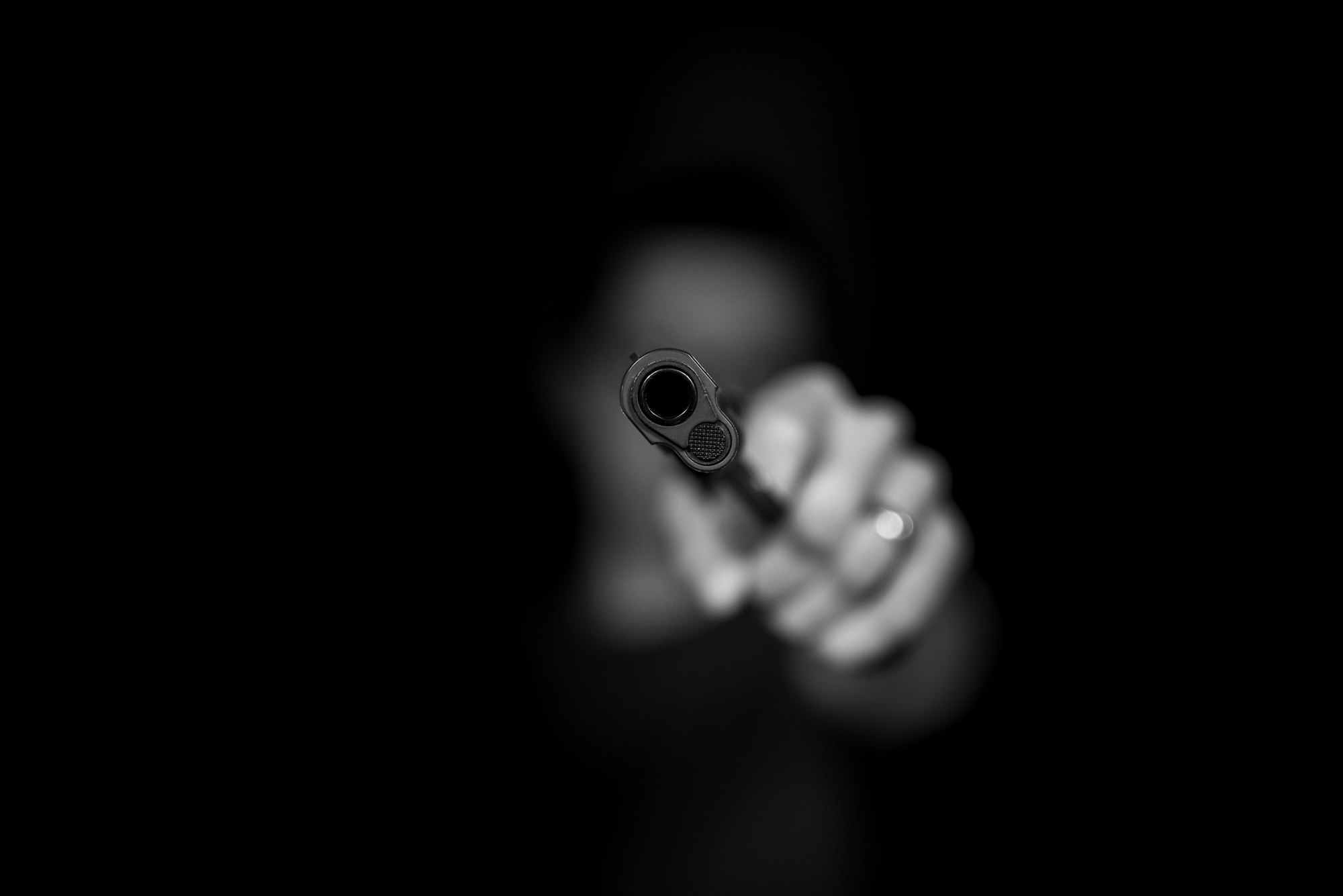
Understanding and becoming familiar with your firearm's safety features and handling techniques is key to safe hunting. Before taking your gun out into the field, ensure you can easily operate the safety, reloading mechanisms, and other controls while wearing gloves or mittens.
Also, make sure to understand the recoil velocity of your firearms so that it is not too high for you to tolerate. Get comfortable with the firearm by doing dry-firing exercises and learning how to handle your gun safely.
Be sure to practice proper gun safety techniques, such as keeping the muzzle in a safe direction by not pointing it at yourself or others. Familiarizing yourself with your gun will ensure a safe and successful hunting season!
Also, check out our article on Attaching Rifle Slings without Swivels.
Choose ammunition that is appropriate for the game and season you are hunting.
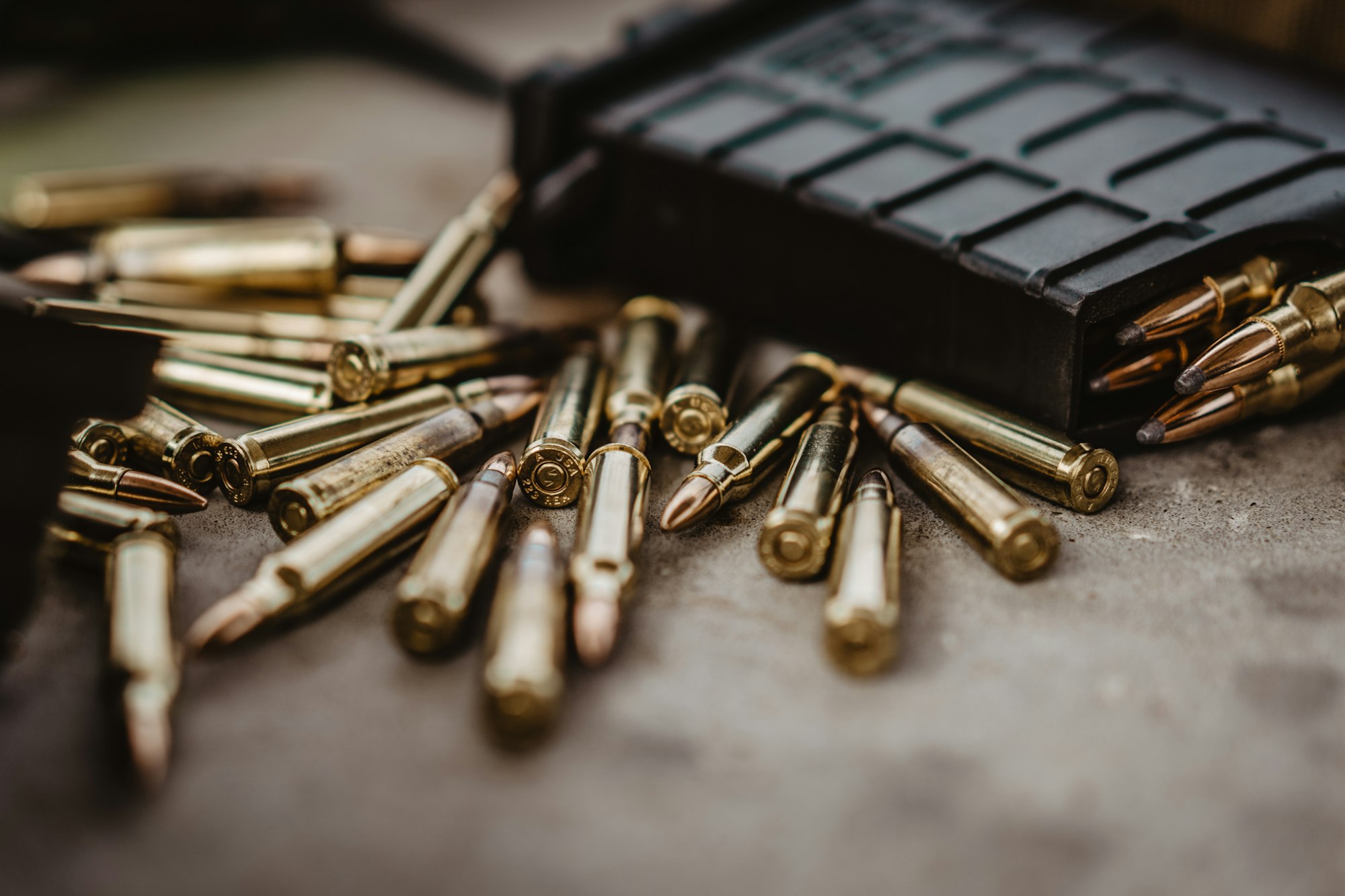
Choosing the right ammunition for your hunting adventure can make all the difference. Whether you’re hunting elk, deer, or waterfowl, choosing an appropriate type of ammunition for the game and season in question is important.
For example, copper-plated lead bullets are recommended during the fall season when hunting elk or deer because they are designed to produce more damage while still providing a clean kill. Steel shot is best when hunting waterfowl in the early season because it has a higher impact and tighter patterns.
Research what type of ammo is best suited for the species you intend to hunt, which will help ensure a successful and ethical hunt.
Take a look at the video to know more about choosing your first firearm for hunting:
Also, check out our article on the Best Spotting Scopes.
Final Words
Ultimately, when it comes to selecting a firearm for hunting, safety should be the utmost priority. It is important to thoroughly research a weapon before purchasing it to ensure that it meets all your needs and expectations.
Taking the necessary steps to understand the type of firearm and its capabilities can help guarantee a successful hunt and an enjoyable experience for you and the wildlife in your area.
With proper training and care, hunting with firearms can become an enjoyable tradition that can be passed down for generations. And if you are a hunter looking for the best gear, check out our section on the best available hunting gear on the market.
Some of our other informative articles that you might like:
Also, check out some of our other quick reads:

